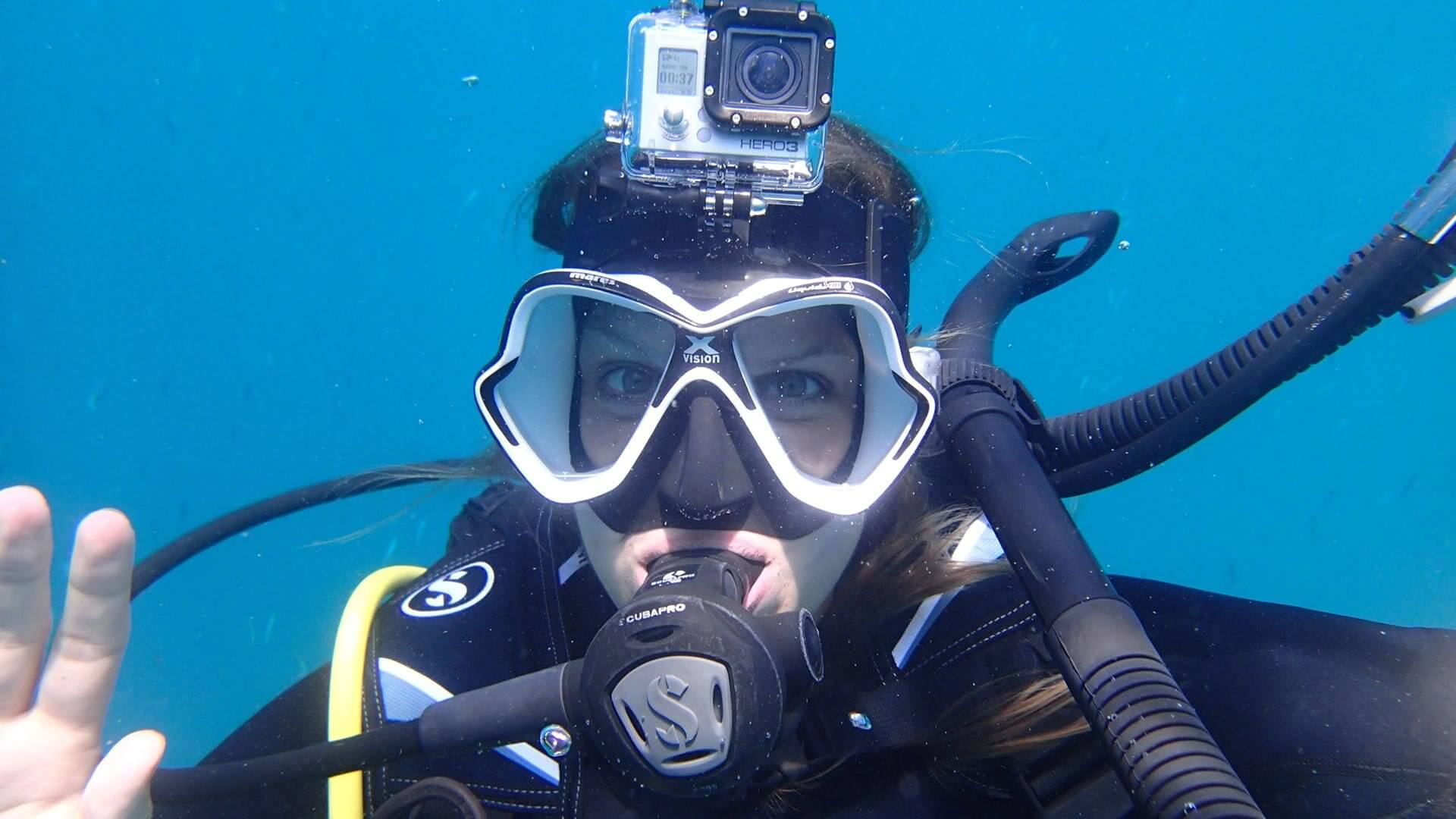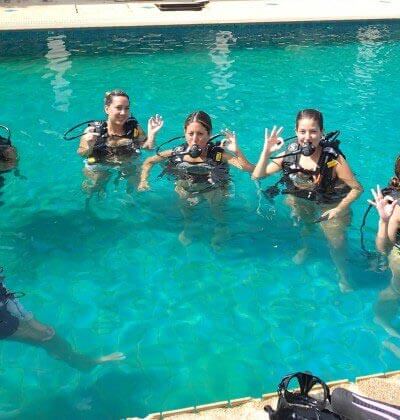Why does my scuba mask fog up?
Fogging scuba or snorkeling masks have been a scuba diving issue since scuba diving first started.A foggy mask can ruin a dive. Here we will try and work out why does our scuba masks fog up?
The basic principle on why a mask fogs is a simple one. In the simplest term, temperature inside the mask is greater than the outside of the mask. The temperature difference occurs because our body temperature inside (skin, forehead, breathing) is around 37 degrees Celsius or 98 degrees Fahrenheit and the water on the outside of the mask is less than the water temperature.
Very basically, the temperature difference causes condensation (assisted by our damp breath or sweat) and settles on the glass of the mask. Glass is not the best surface for the condensation/water to adhere to and that something is typically the residue left over from the manufacturing process that coats the lens, dirt and oils on the lens.
The first step of making sure your mask is less prone to fogging is a perfectly clean mask.
Here are some tips to avoid having a foggy mask.
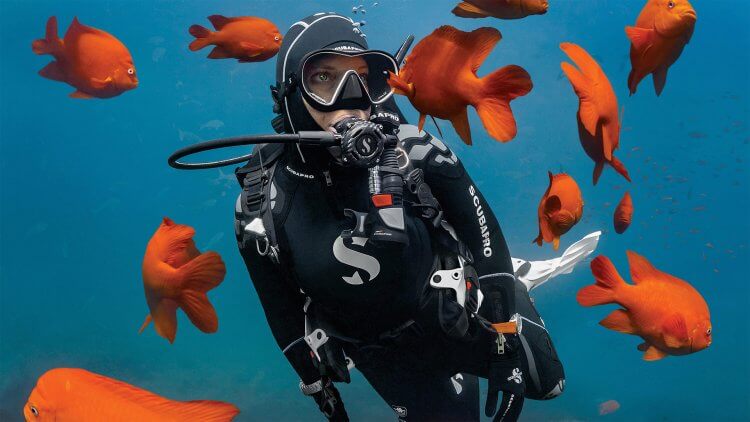
Why does my scuba mask fog up?
Let Aussie Divers Phuket Find You a Great Mask
Change some habits
• Don’t breathe out of your nose!! I personally believe this is the greatest issue leading to mask fogging. The warm moist air from your inner body if perfect for creating condensation. When you first start diving it may be difficult to do however take some time to adjust to solely breathing in and out through your mouth. Exhaling through your nose undoubtedly cause of mask fog. Focus on mouth only breathing and you will go a long way to having less fogging issues.
• Have a correctly fitting mask, especially for those with Asian faces. Most universal masks are designed for the bigger western noses (such as the writers). The nostrils are sealed by the nose piece and it makes it very difficult to breath through and for damp air to enter the mask. Asian typically have small noses that don’t seal in the mask making it easier for them to exhale into the mask. Many scuba diving brands have Asian masks, Gull seems to be the leading the way and Cressi have a new rage being release soon. Further, a poorly fitting mask can let excess water in and that can also add to condensation issues.
• Avoid touching the inside of your mask. More so if you have just used defogger For fingers contains oils and touching your mask transfers those oils into it. This negates the defogger effect and dirtying your mask. Many divers apply defog using their fingers. Try to avoid doing that. More so if you are finding your mask still fogs after application. Use a defog that can easily swish around inside your mask rather than needing to be manually spread, and once it’s rinsed don’t put your hands back on it.
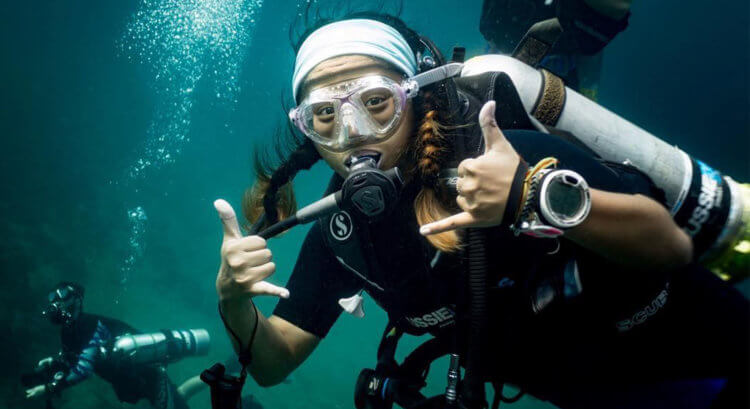
Enjoying The Dive Aussie Divers
Let Aussie Divers Phuket Find You a Great Mask
General Care of your mask and good habits
As we have written in a previous blog, cleaning your mask with non-whitening toothpaste is a great way to reduce fog. We know to do this with a new mask however masks do get a buildup of gunk and they should be cleaned regularly. Salt water, grime and even chloring from a swimming pool can cause unwanted build up. Try to clean the mask with a soft bristled tooth brush and avoid touching the mask with your fingers.
Try to put put your mask on with a dry face. Dry your face with a dry towel if you can. If you need to and even wipe off the skirt of your mask. Try not to remove your mask off once it is in position. This hopefully will keep as much water out of the mask as possible.
Rinse your mask off with lukewarm or cool water after each dive. Then pat it dry with a clean, dry towel. Wash your mask every once in a while with mild soap to prevent your mask from getting any dirt or oils from building up on the lens. Always pat it dry with a clean, dry towel. Do not store your mask while it is wet. Cleaning and drying off your mask will also help prolong the life of your mask.
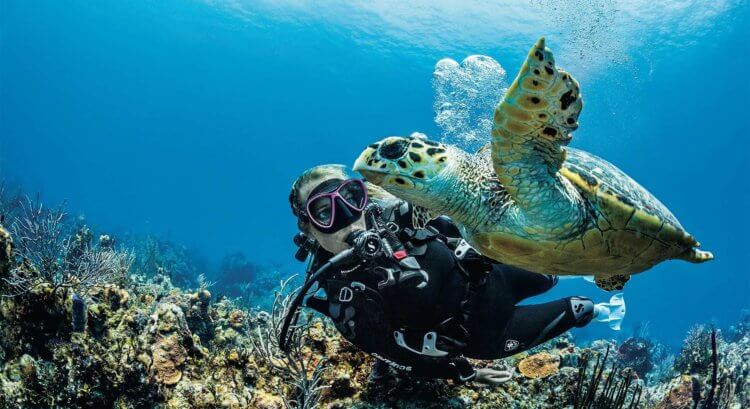
Scubapro Turtle Aussie Divers Phuket
Mask Defogging Methods
Hopefully the toothpaste method keeps you mask fog free. Here are some additional ways of keeping you mask clear of fog.
• As mentioned previously, by using defog products. There are many brands of sprays and serums designed towards defogging snorkel and scuba masks. They mostly all work in work in a similar way. Read the directions before using, some require you to rinse the mask and some require the solution to dry and the defog to stay on the lens. All are relatively Inexpensive and should last you a long time.
• Baby shampoo is also a cheap and popular alternative to defog. Dilute a few drops of baby shampoo in water and pour it into a spray bottle. Use it the same way as commercial defog: spray, swish and rinse. Why baby shampoo and not regular shampoo? It’s gentle on the eyes and is biodegradable.
• Good old fashion human spit. This is a common, effective, and free way to fight mask fog. Some divers even say that spit is more effective than anything you can buy. This method may be decreasing in popularity given COVID-19. The process is the same. Apply, rinse, and wear it.
Let Aussie Divers Phuket Find You a Great Mask
Posted in Everything Else on .

